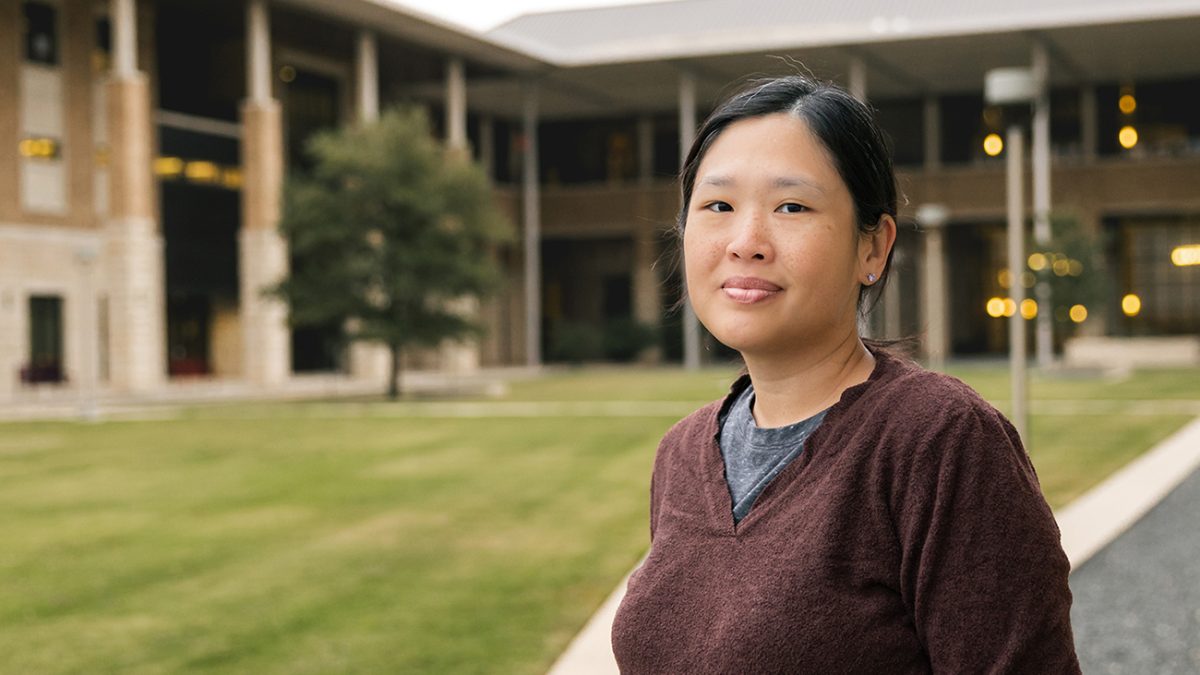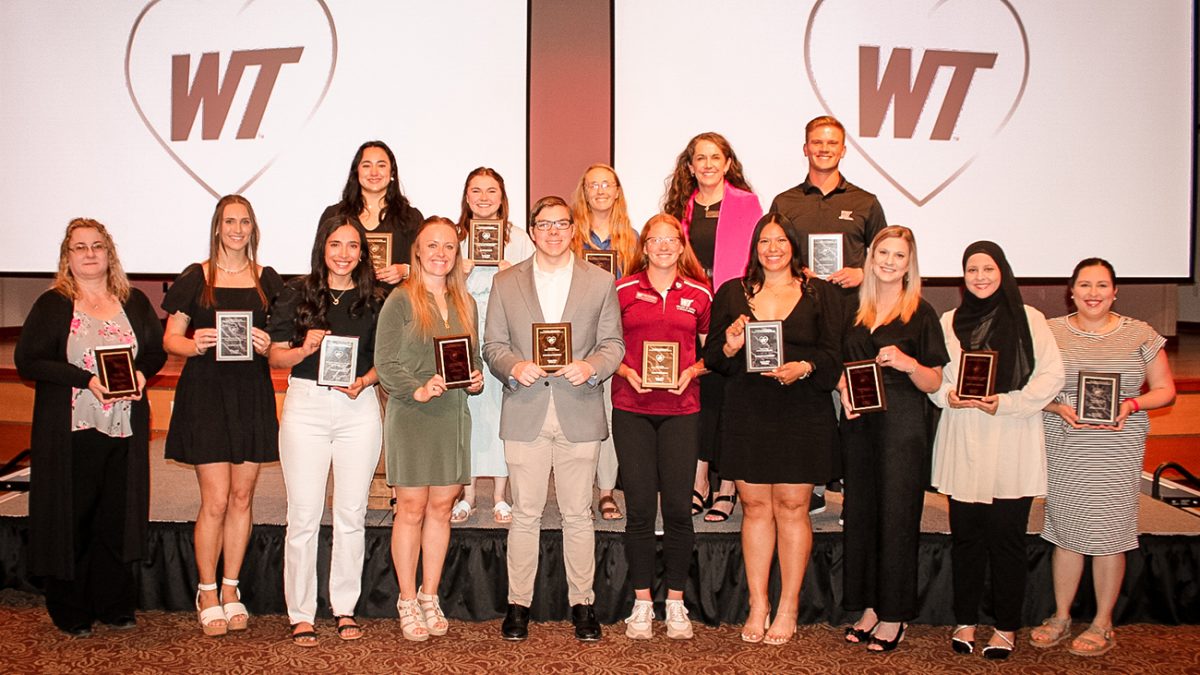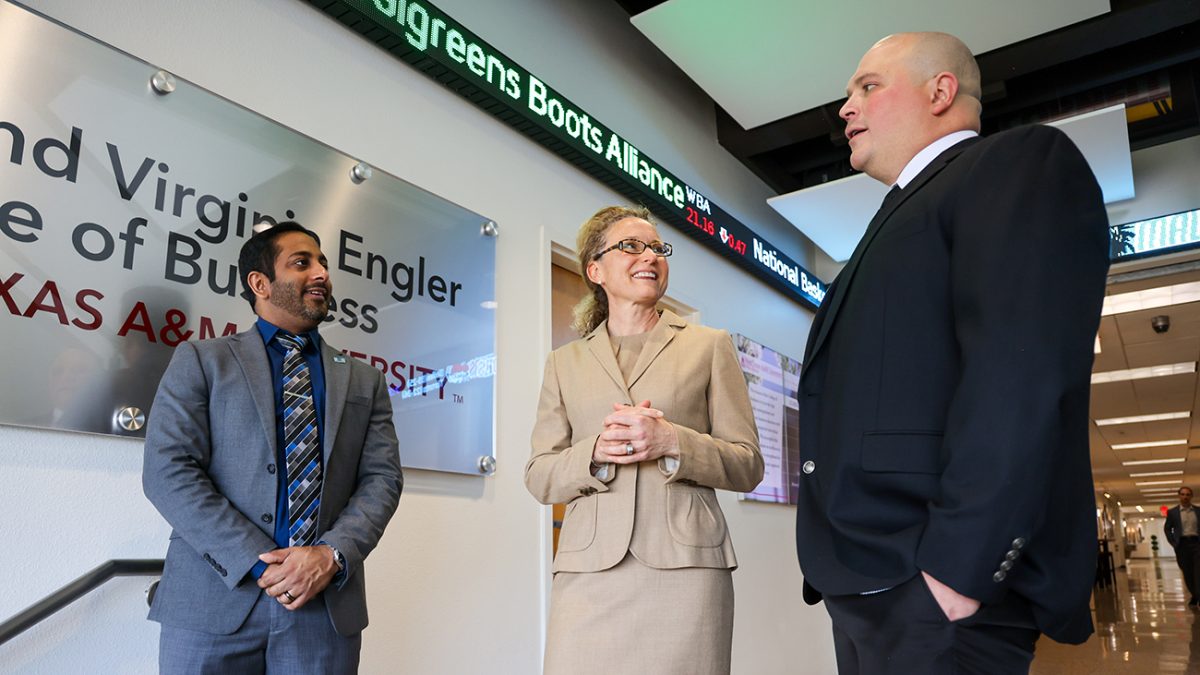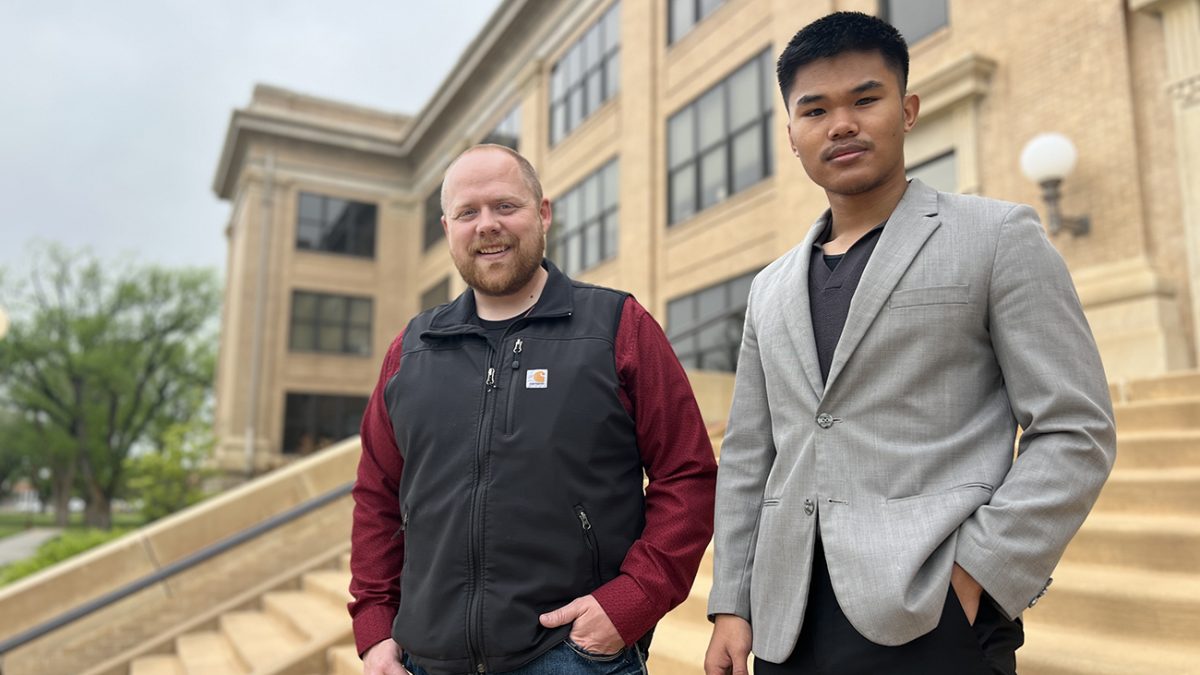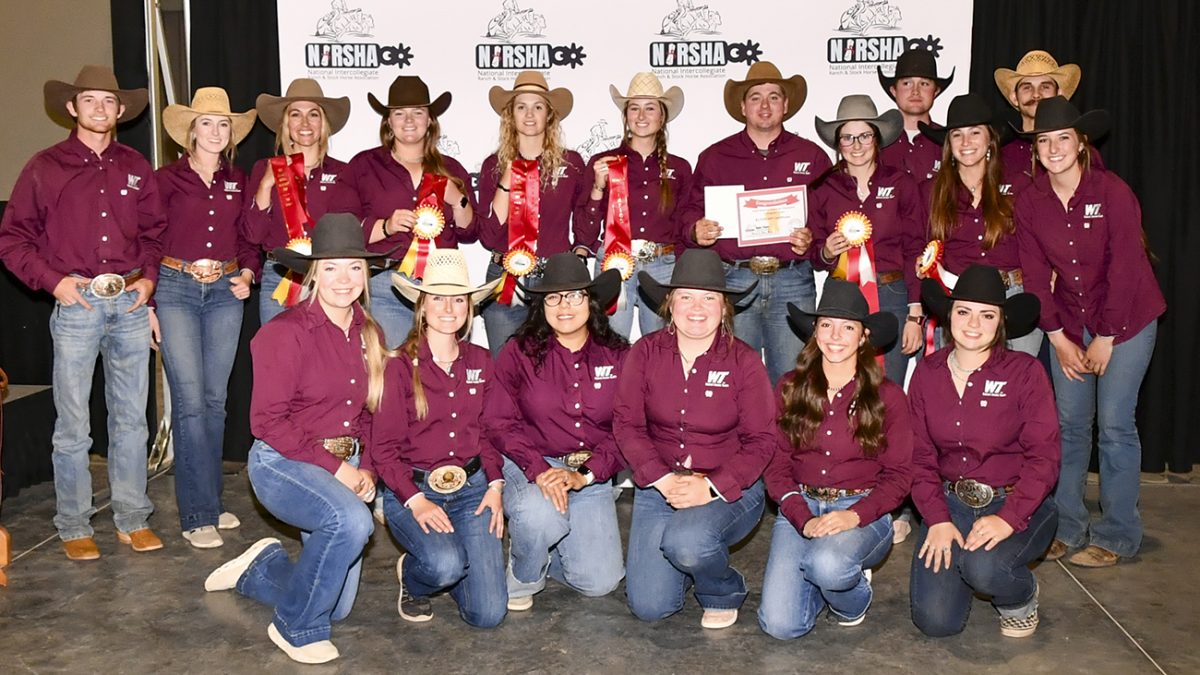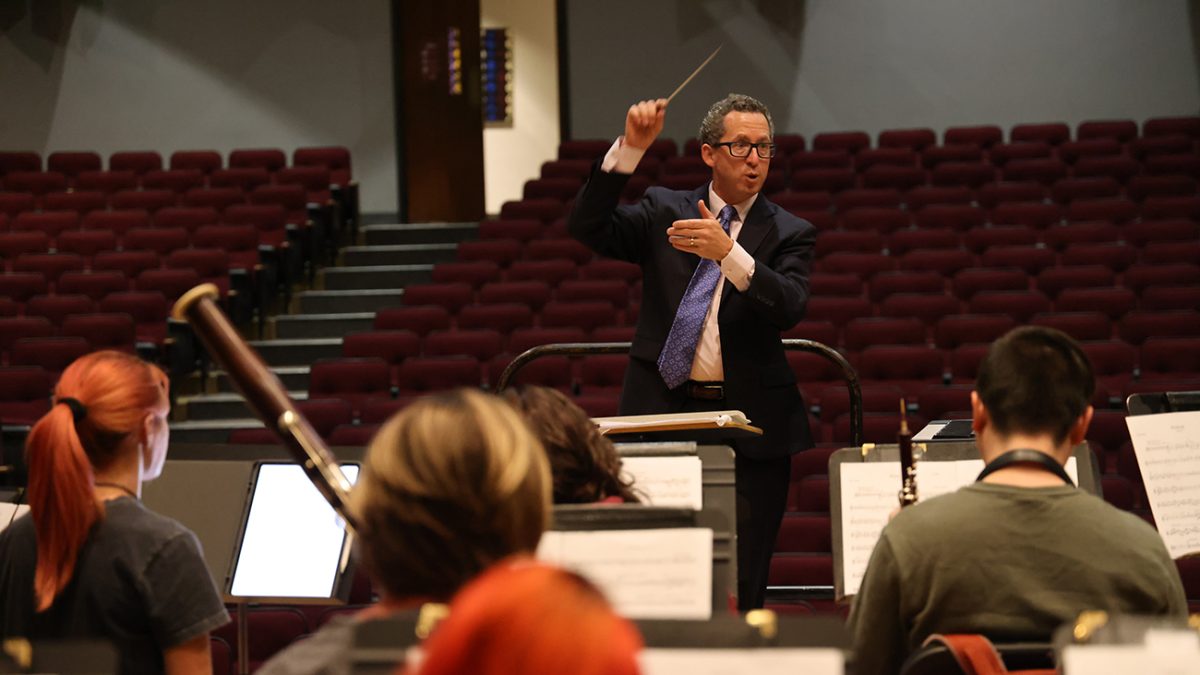Dr. Christina Chan, a board-certified small animal internist, is the newest faculty member to join the Texas A&M School of Veterinary Medicine & Biomedical Sciences’ (VMBS) Veterinary Education, Research, & Outreach (VERO) program on the West Texas A&M University campus.
Chan will serve as a small animal clinical educator and will contribute to VERO’s mixed animal approach to graduating veterinarians equipped with the knowledge and skills they need to serve all animals in rural communities.
Chasing Childhood Dreams
Growing up, Chan had her sights on a medical career because her family was medically oriented, with both of her parents working in human health care. However, her childhood dog inspired her to pursue a career in the veterinary field instead.
“I love animals, which I’m sure all veterinarians do,” Chan said. “I had a beagle who was the love of my life. He lived to be 16, so I had him for a good part of my life. Taking care of him and living through all the different diseases he developed sparked an interest in veterinary medicine.”
After graduating from veterinary school at the University of Tennessee in 2011, Chan completed a small animal medicine and surgery internship at the University of Illinois, followed by a small animal internal medicine residency at Michigan State University. In 2015, Chan joined a private practice outside Orlando, Florida.
“After being in academia for my training, I wanted to try the private practice sector,” she said. “Since I had done my residency in Michigan and spent three years in the cold and the snow, I also decided that I wanted somewhere warmer, which is how I ended up in Florida.”
While working at the clinic, Chan found teaching and mentoring the interns and residents particularly enjoyable but did not have as much time for it as she would have liked.
“I reached a point in my career where I was just trying to find a better quality of life,” she said. “I would get to work at 7:30 a.m. and sometimes I wouldn’t leave until 7 or 9 p.m. I just didn’t get as much time as I would have liked to devote to teaching.”
After searching for her next career opportunity that would allow her to focus on teaching, Chan found the perfect fit at VERO. She appreciates the balance that the position at VERO has brought to her life, including her newfound free time to spend with friends and family, like her husband and their dog, Mochi.
Individualized Instruction
By joining VERO, Chan found a unique opportunity to continue making an impact on the veterinary field while also finding more time to connect with students and fellow faculty members. Her classes feature a low student-to-instructor ratio and a tag-team teaching style that lets Chan focus on her specialization of small animal internal medicine.
“The courses are taught in a different way than most college courses are,” she said. “I mainly focus on dogs and cats, so I could teach a class on kidney disease in small animals on Monday, and then one of the other instructors would teach kidney disease in cows or another large species on Tuesday. We all work together to teach the various lectures within each course.”
Chan also enjoys using life-like models to craft interactive labs. These non-living models include realistic animal manikins and computer-based simulations, which the students use to practice their clinical skills.
“We can practice drawing blood, doing surgeries, examining the eye, and even doing anesthesia,” she said. “Those are things I never had when I was in vet school, and it’s so cool that our students have these models so they can develop these skills before entering the clinical setting.”
Chan hopes to inspire students to love the veterinary profession and the many facets that it has to offer.
“The curriculum we build here at Texas A&M tries to integrate everything in a practical sense. When you finish the four years of school, it’s not just a bunch of knowledge you’ve never used before or have only known in an academic setting,” she said. “I hope to give them a really solid foundation that they will build upon throughout the rest of their careers.”



